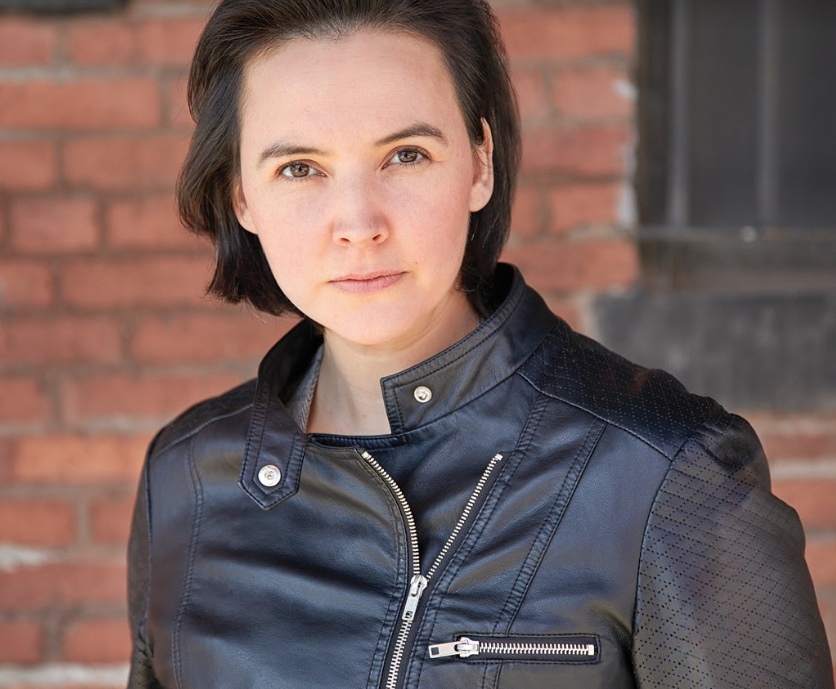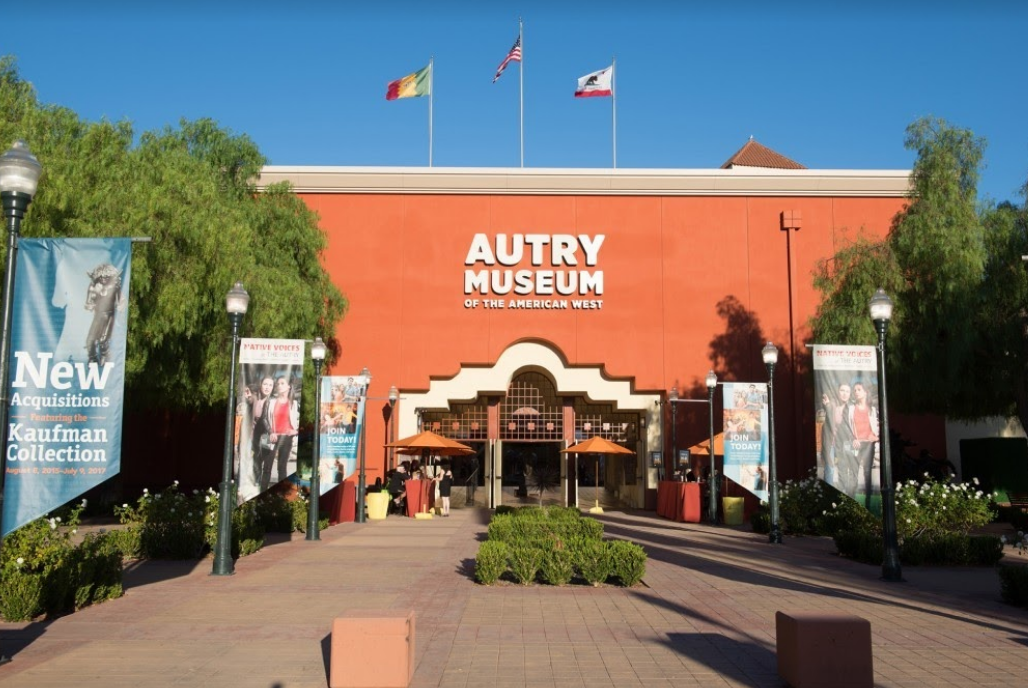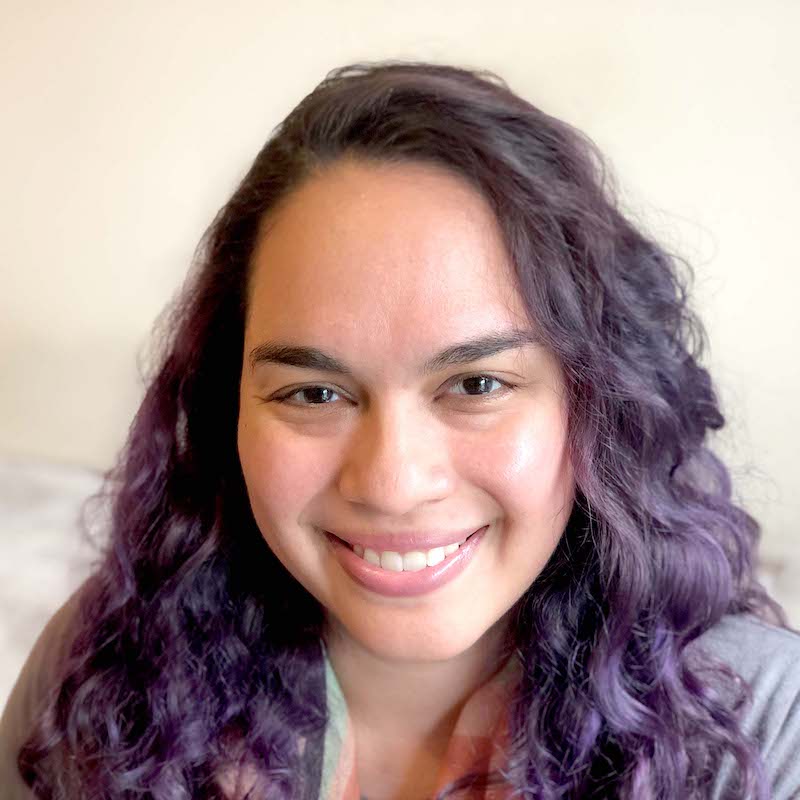
- Details
- By Monica Whitepigeon
CHICAGO — Earlier this month, Native Voices at the Autry presented its 27th Festival of New Plays and featured a new work by Dena’ina-Athabascan/Yupik playwright June Thiele (she/they). The 80-minute play “K’kali” is a magical, modern tale about a queer Indigenous artist who wrestles with culture, relationships, identity and a possible real-life monster.
The Chicago-based writer/actor spoke with Native News Online to give an in-depth look into the play and their process.
Want more Native News? Get the free daily newsletter today.
Congratulations on starting your family, especially during a pandemic. How are you doing?
It’s been crazy. The pandemic has definitely changed things up in good ways and also crazy ways. We are trying to enjoy the things that we are able to do, and what we’re afforded to do during this time and to be together and to connect. So that has been really enjoyable because I wouldn’t be spending so much time with my kid if I still had my regular work at the office. That’s one benefit of what’s been going on, but it’s all the fear and panic going on too!
Tell me more about your new play, “K’kali.”
It’s been a crazy journey with this play. Over the years, I’ve been thinking about this project in particular for about seven years. I have been working on it more diligently over the last few years and had several rewrites. Native Voices did more of an intensive workshop that took a lot of my time, which is awesome because then I had deadlines and on top of my normal work. But it’s been really good.
Have you worked with Native Voices before or is this the first time?
The first time, I was accepted into last year’s one with this play. It was formerly called “Ashana: A Native Story.” Ashana was the character’s first name and it means flower, which is my nickname/Native name. I was using that name up until this last reiteration of the play, and then I changed the name completely, which changed the storyline a little bit. It was already headed in a certain direction but then this name I had changed it to trails or paths—I don’t explain it a lot, but you see the paths in the journeys this character takes and has shown some paths. So, we worked with that and really developed some of the smaller aspects to make them more vibrant and to push the story along.
This must have been a little bit challenging to develop and produce something when there’s limited travel and social distancing. How was all that?
It was great because, honesty, I wouldn’t have been able to do it otherwise. Or I would have been able, but it would have eaten up too much time away from my day job. They would fly you out to California and do the whole process in-person, which I feel like could have changed everything. I was still doing all my work and in the process of doing a lot of things on top of doing these workshops. I don’t think I would’ve had this opportunity to attend last year because Tali (June’s child) was being born. And the pandemic hit, and everything went out the window.
(Native Voices) accepted me again so I was very happy about that. I’m very grateful I got to do this process because I think it put the play in a really good position. A few things fall off during the course of this year. Some of the language stuff I wanted to incorporate more. The K’kali character was supposed to only speak in Dena’ina. I am not fluent so some of the translations would have been hard. I had an elder translator who had to drop out because of illness and then I couldn’t get someone else quick enough to have time to translate. I would love to see it with all Dena’ina. K’kali was played by an Athabaskin/Yupik actor as well which was a super call. The dialects are a little bit different, but his interpretation was good. He did a wonderful job with Dena’ina that was already there. But I may have to get a speaker or somebody to play that character when it gets a production. Besides that, everything went pretty smoothly.
Good, glad to hear it. Was it performed on the stage or was it all virtual?
It was all virtual. Good ol’ Zoom theater! At first, I like “Ugh, Zoom. Who wants to see a Zoom reading”’ But there have been (new) productions and readings that I can still feel the theater. “K’kali” was one of those productions that I was like “Oh yeah, this is great!” Everyone’s reading—not memorized—and they did such a phenomenal job that I was blown away by the actors and the direction. My director was Rhiana Yazzie (Diné) with New Native Theatre. It ran and it was awesome. (Rhiana) feels so passionate about this and she had read it a couple of years back and really enjoyed it then. It was really cool that Native Voices reached out to her to do this one.

Do you feel like this one is similar to things you’ve done in the past or is it somewhat different?
This is my first full-length play. I’ve done some short films and short plays quite a bit. I’ve written for children’s theater and adult’s as well. This one is more in the realm of magical realism, but it’s also extremely real. I feel like the characters are like someone you’d just meet. There are a few moments of magic within characters’ lines, but the character K’kali really makes it more magical play. I’ve been writing this piece for so long that I feel like this has been the through line of my playwriting. My children’s pieces were more magical realism, but even adult theater can be magical in a lot of ways. A lot of my work has been pretty straight forward in the whole realism aspect, but I definitely wanted to play with that in this one.
Being a writer, you get to delve into many different genres, is there one in particular that you lean more towards or you want to explore a little bit more? Is identity more at the forefront or do characters just happen to be Indigenous or LGBTQ2S?
I don’t want to hold myself back and say, ‘I’m only horror writer or whatever.’ “K’kali” has some of those elements of magical realism, horror and lots of different kinds of genres. Most of my stuff involves Indigenous people, queer people and/or both. But sometimes other random things come to my brain, so I don’t quite like limiting myself in that aspect. What made me write in the first place was because there were no stories of Indigenous people or not a whole lot of queer stories where the whole storyline is not just about them being Native or queer or coming out to their families is the premise. These people have real lives and other situations where they could be queer or Native, they don’t just have to be the stoic Indian or the drug addict character. These Native tropes are a part of Indigenous life in a lot of ways, but it’s not anybody’s whole story and I feel like that is what is concreted in the storytelling. It is switching and changing up a bit, because there are more Native creators. More Indigenous creators create more and better stories.
I’m working off of what I know. As a queer person and Indigenous person, I have that lens, so I am able to write to it and write true to it rather than being like “Well, I read this book one time and I know everything about blagitty blah blah.” There’s a fine line when trying to write other peoples’ stories, I feel like it’s not an Indigenous thing to do, and it’s not quite right in some ways. Most things are written by white straight guys and those were the people put on a platform, which is unfortunate.
You take on different roles in the performing arts, such as actor and writer. Do prefer to do more writing or more acting or does it depend on the project?
If you have this mind frame of wanting to be an actor and having that passion, even though it’s going to be hard and almost impossible to be a living actor, it’s still engrained in you. I’ve been acting since junior high school and I was confident that I was going to be an actor. I love acting, I think it’s phenomenal. What I don’t like is that my fate is up to somebody else. In a lot of stories, I feel like this has been done so many times. It gets really frustrating seeing the same stories and productions get told over again. I wasn’t seeing a ton of other voices in there, especially Indigenous writers. They are out there writing for theater and film, but they don’t get the same platform as a lot of people.
I remember being so heartbroken over things I didn’t get, and as an actor that’s common. It’s part of the routine, but it gets disheartening after a while and I wanted to take my control back. Luckily, I’ve been afforded that opportunity (to write) and I enjoy it and get paid a bit more. Being able to create my own things is really beautiful and wonderful. I see a lot of my actor friends also writing and doing films. Seeing them take this on and really go for it is powerful. I’m given this opportunity to get the word out there and do good to create stories that will enrich a lot of cultures to have an understanding of a different culture. We need to cultivate and expand the world of theater. Let’s get some other faces in the crowds and make it more accessible to everybody, and you do that by telling other peoples’ stories.
I don’t like to shy away from topics, and this play has some harder topics. Bringing them forward and having those harder conversations, even though they may ruffle some feathers, I’m not willing to compromise in that way to make people feel comfortable. What people have said about “K’kali” is that it doesn’t panhandle to the white crowd as a Native person. If you just don’t get something, you just don’t get it, but you can still follow along. There are some cultural references specific to Dena'ina, but I don’t necessarily explain it.
You’ve written for “Molly of Denali,” an award-winning Native-focused animated series with season two coming out this fall, do you see yourself going more into children’s television or other youth specific work?
It’s been confirmed that some of my episodes will be in season two. I’ve written four episodes, but I’m not sure if they’ll use all of them. I’ll continue to work with them and hopefully they’ll get another season. So many people (tell me) “My kid, my friend’s kid, my cousin’s kid just love it! And we’re learning things too!” It’s a really good show. There’s so much culture packed into the show. They have these goals set up to help further and do each episode to the fullest ability that they can possibly do and bring representation into it. Cultural advisors and a lot of Native people are brought into every aspect of the show. They do a lot of research. PBS, they are just the best.
I’ve been thinking about doing a children’s narrative series that would be really fun and cool to do. We have a few friends in children’s publishing, and they’re always wanting to hear more ideas. So that’s something I’m definitely interested in doing. With children’s stories you can hit really sensitive topics and have them learn about them in a way that gives them an action plan or how to digest it. I don’t think children should be as sheltered as they are. Things that are traumatic to learn when you’re younger can be learned and processed in a good way. It’s important to have these conversations at a young age. It would have been great if I knew how to process emotions when I was younger.
Do you have any advice for young ones (or older) who are looking into writing?
I feel like a lot of Indigenous people are storytellers, it’s something that’s passed down even if you don’t realize it. Writing is something that I learned along the way and wish that I had had more confidence in my ability to write stories at a younger age. The creativity is there, so just write. Nothing’s good/amazing when you first write something down. There’s always rewrites and that will get you places. If you have a unique identity you want to see more of that, just do it cuz who’s the person to do it? You’re the person to do it.
More Stories Like This
Zuni Youth Enrichment Project Takes Top Emerging Artist Apprentices to Phoenix for Artistic Exploration and Cultural ImmersionFrom Dishwasher to Award-Winning Chef: Laguna Pueblo's Josh Aragon Serves Up Albuquerque's Best Green Chile Stew
Rob Reiner's Final Work as Producer Appears to Address MMIP Crisis
Vision Maker Media Honors MacDonald Siblings With 2025 Frank Blythe Award
First Tribally Owned Gallery in Tulsa Debuts ‘Mvskokvlke: Road of Strength’
Help us defend tribal sovereignty.
At Native News Online, our mission is rooted in telling the stories that strengthen sovereignty and uplift Indigenous voices — not just at year’s end, but every single day.
Because of your generosity last year, we were able to keep our reporters on the ground in tribal communities, at national gatherings and in the halls of Congress — covering the issues that matter most to Indian Country: sovereignty, culture, education, health and economic opportunity.
That support sustained us through a tough year in 2025. Now, as we look to the year ahead, we need your help right now to ensure warrior journalism remains strong — reporting that defends tribal sovereignty, amplifies Native truth, and holds power accountable.
 The stakes couldn't be higher. Your support keeps Native voices heard, Native stories told and Native sovereignty defended.
The stakes couldn't be higher. Your support keeps Native voices heard, Native stories told and Native sovereignty defended.
Stand with Warrior Journalism today.
Levi Rickert (Potawatomi), Editor & Publisher

